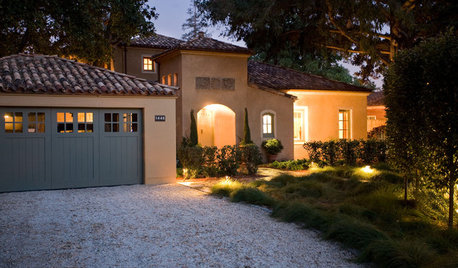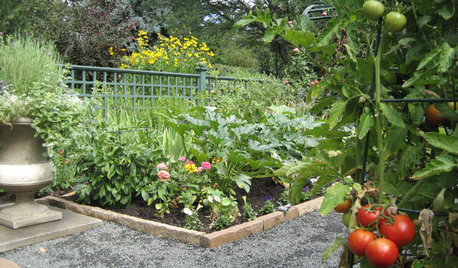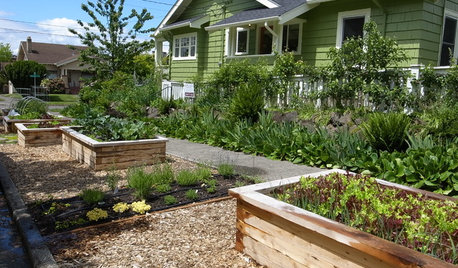Calcium Chloride and Pickles
gardengrl
14 years ago
Related Stories

REMODELING GUIDESGravel Driveways: Crunching the Pros and Cons
If you want to play rough with your driveway, put away the pavers and choose the rocky road
Full Story
GARDENING GUIDESPacific Northwest Gardener: What to Do in June
Now's the time to prune pines and vines, prevent pests and buy June-blooming plants to keep your garden healthy and beautiful
Full Story
HOUSEKEEPINGHow to Clean Stainless Steel
Protect this popular kitchen material with a consistent but gentle cleaning routine
Full Story
HOUSEKEEPING20 Things You Might Be Forgetting to Spring-Clean
Clean these often-neglected areas and your house will look and feel better
Full Story
MOST POPULARPros and Cons of 5 Popular Kitchen Flooring Materials
Which kitchen flooring is right for you? An expert gives us the rundown
Full Story
KITCHEN DESIGNAlternatives to Granite Countertops, Part II
Still looking for a new kind of countertop? Try sodalite, zinc, limestone, onyx and more
Full Story
BEFORE AND AFTERSSee 6 Yards Transformed by Losing Their Lawns
Wondering whether a turf lawn is the best use of your outdoor space? These homeowners did, and they found creative alternatives
Full Story
HOUSEKEEPINGHow to Clean a Glass Shower Door
See which tools and methods will keep those glass shower walls and doors sparkling clean
Full Story
GRASSESHow to Rock a Lawn
Weekend Project: The key to healthy grass begins with the soil. If turf works for you, here’s how to fix it and keep it looking its best
Full StoryMore Discussions






ksrogers
Linda_Lou
Related Professionals
New Bedford Landscape Architects & Landscape Designers · Jennings Landscape Architects & Landscape Designers · College Park Landscape Contractors · Columbine Landscape Contractors · Federal Way Landscape Contractors · New Cassel Landscape Contractors · Paterson Landscape Contractors · Petaluma Landscape Contractors · Pleasant Hill Landscape Contractors · Columbus Roofing & Gutters · Greenville Roofing & Gutters · Summit Roofing & Gutters · Ashburn Driveway Installation & Maintenance · Bear Driveway Installation & Maintenance · Leesburg Driveway Installation & MaintenancegardengrlOriginal Author
Linda_Lou
ksrogers
tclynx
ksrogers